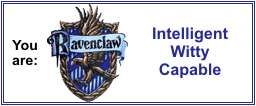 Unknown Shore
Unknown ShoreBy Robert Ruby
Henry Holt 2001
Unknown Shore recounts the practically-forgotten story of the Frobisher expeditions and the first attempt to colonize the New World. Martin Frobisher (ca.1535-1594) initially set out to discover a northwest passage to Cathay, but instead stumbled across the Arctic, a place that was still a mysterious Ultima Thule to the English.
During his first stay off the coast of Baffin Island (Actually they were on Resolution Island), he managed to kidnap an Inuit to take home and display as a “curiosity,” accidentally leave five of his men behind when he left, and—most importantly, as it turned out—discover a strange kind of “black rock” which, when examined by assayers back in England, was reported to contain significant amounts of gold. Seized by gold fever, the English decided to send Frobisher back for more black rock, along with enough men and supplies to start a mining colony in the new land he’d discovered.
You don’t have to be a history major to know where this one is going: the would-be colony fails to take hold, and the black rock turns out to be worthless. And the route to Cathay? Never found—no such thing existed. The whole painful incident might have been buried by history, if Frobisher’s angry investors hadn’t made such a noise about their lost money. As it is, the voyages and their humiliating outcome remain a little-known historical footnote, despite the fact that Frobisher and his men were the first English people to set foot in the New World -1576 to 1578 . (Was this before or after John Cabot?)
Interwoven with this story is the tale of an American, Charles Francis Hall (1821-1871) an eccentric Arctic enthusiast who set out, entirely on his own, to discover the fate of the lost Franklin expedition. Along the way, he learned from the Inuit of another, much earlier group of white men who had come to their land. Investigating, Hall found the island that was to have housed the English colony, and the centuries-old trenches that marked their mining operations. He also proved once and for all that Frobisher’s Strait, the body of water Frobisher had insisted was a waterway, was actually a bay.
Ruby tells the story well. The biggest thing that stayed in my mind was the assumption of the English that the Inuit were cannibals. And how did the English arrive at that conclusion? Because the Inuit are raw fish. So if they ate raw fish, then they probably also ate raw people. This affected their relations with the Inuit - treating them like primitive and uneducated people.
The one major flaw in the book’s storytelling is the chunky “intertwining” of the parallel tales; Ruby spends a few chapters on Frobisher’s adventures. And then, just when you’re really getting into the story, he cuts away to Hall’s adventures. By the time you’re well into Hall’s story, it’s back to Frobisher again. Both stories are interesting, so interesting that you want to follow each one through right to the end—no breaks.
I read this book for the Second Canadian Book Challenge and also for the Non-Fiction Challenge. I should have read this for the first Canadian challenge, but never got around to it. I read this because John wants to know what this book is about. He has never heard of this book and he lives on Baffin Island - or he did live on Baffin Island up until last month. I believe he has just moved to Yellowknife in NWT.









1 comment:
Yes, I'm now Yellowknife-- safe and sound.
Back in university I was actually commissioned to write a young adult historical fiction book. I planned on doing it about Frobisher. After a LOT of research, I slapped together three chapters-- which I never gave them-- and put the project aside when the funds ran out. It was going to be about a fictional nephew of Frobisher who longs for the attention of his uncle but instead finds a father figure in the kidnapped Inuk.
Post a Comment